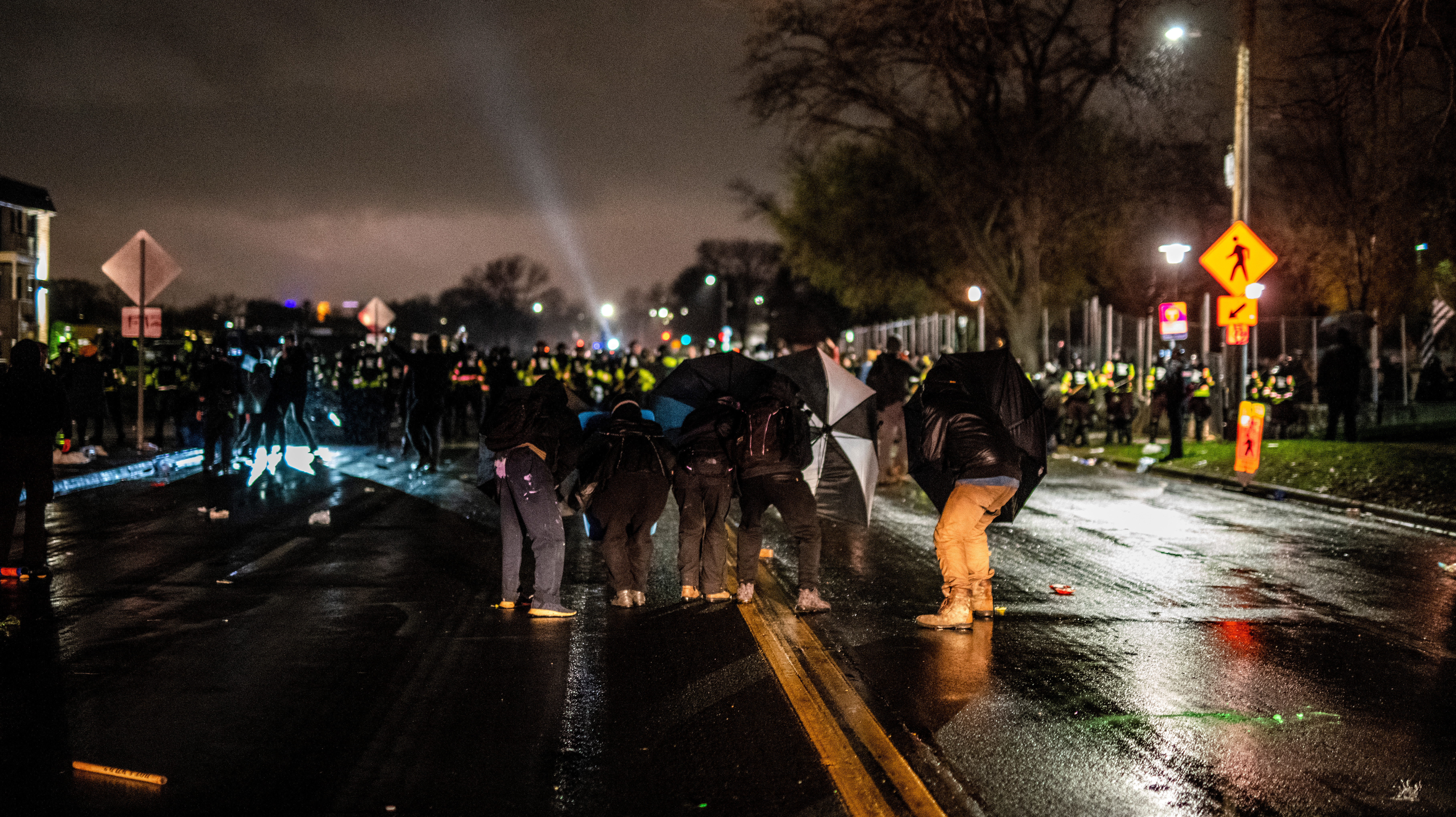Florida Law Now Grants Immunity To Drivers Who Plow Into Crowds Of Protesters
Florida governor Ron DeSantis signed a new law Monday that, among other things, will legally protect drivers who plow into groups of protestors from civil lawsuits.
Florida has seen very little in the form of "violent unrest" protests, as the Orlando Sentinel pointed out. No surprise, then, that DeSantis explicitly tied the signing of this law to the Derek Chauvin trial in Minnesota during the signing. Here's the bit we're most concerned with:
The law, which goes into effect immediately, grants civil legal immunity to people who drive through protesters blocking a road, which Democrats argued might have protected the white nationalist who ran over and killed counter-protester Heather Heyer during the Charlottesville tumult in 2017. It also makes blocking a highway a felony offense.
Black Lives Matter protesters faced down violence in the form of drivers plowing through their ranks dozens of times last year. Researchers at the George Washington University's Program on Extremism looked at 66 such attacks and found that out of 66 studied by fellows at least 19 of the attacks were clearly malicious, while only four were not. The remaining 36 were unclear. At least seven such attacks were from police vehicles.
Even when there was obvious malicious intent, drivers were rarely charged with a crime, like in this ramming attack in New York which resulted in a protester being dragged for a block, but resulted in no charges for the driver. In the case of Florida, now the state would most likely neglect to charge such driver with criminal charges and protect such a driver from civil lawsuits.
The law does other things that are quite chilling to free speech activists, like allowing individuals who commit no violent acts during a protest to be charged with a third-degree felony for simply attending a protest that police deem violent. That person can be denied bail, even if they've never been in trouble with the law before. According to NBC Miami:
Under the law, penalties will be enhanced for crimes committed during a riot or violent protest. It allows authorities to hold arrested protesters until a first court appearance. And it establishes new felonies for organizing or participating in a violent demonstration.
It also strips local governments of civil liability protections if they interfere with law enforcement's efforts to respond to a violent protest and add language to state law that could force local governments to justify a reduction in law enforcement budgets.
[...]
The law will also make it a second-degree felony to destroy or demolish a memorial, plaque, flag, painting, structure or other object that commemorates historical people or events. That would be punishable by up to 10 years in prison.
The law naturally gives police broad discretion to decide what sort of gatherings constitute a riot. In case you were wondering if this law was motivated to stop a certain political brand of speech or would apply to all, Polk County Sheriff Grady Judd made it clear for everyone in attendance. From the Sentinel:
At one point, Judd held up a photo of Black families at the beach and at Walt Disney World, saying law enforcement would help "guarantee an environment where you can come here and have fun." There were no African Americans on stage for the bill signing.
But despite saying he welcomed people moving to Florida, Judd warned, "don't register to vote and vote the stupid way they did up north and get what they got."
The vast majority of charges Florida brought against protesters over the last year were dropped, dismissed or otherwise not filed, the Sentinel reported. All that seems to say to me that protesters weren't doing anything illegal enough for the state, and this law is trying to make sure that won't happen again. Protecting the person who rams into a crowd of human bodies from being sued in civil court (since it would be highly unlikely they would face any criminal charges) really goes a long way in reinforcing that assumption.
Multiple states, such as Tennessee, Oklahoma, Iowa and Missouri have all brought such ramming laws through the legislative process, but this is one of the first and definitely one of the most stringent to be signed into law.
